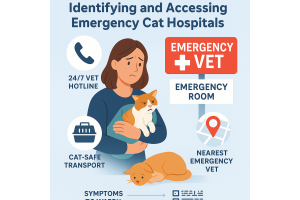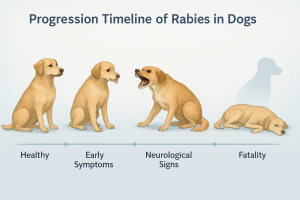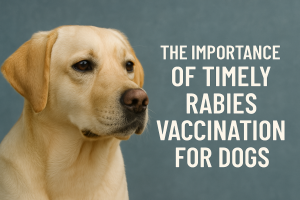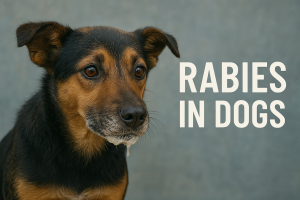Future of Veterinary Medicine-An emerging demand for specialization! By Dr. Roja Basanagoud Patil, Clinical Veterinarian, Electronic City Branch
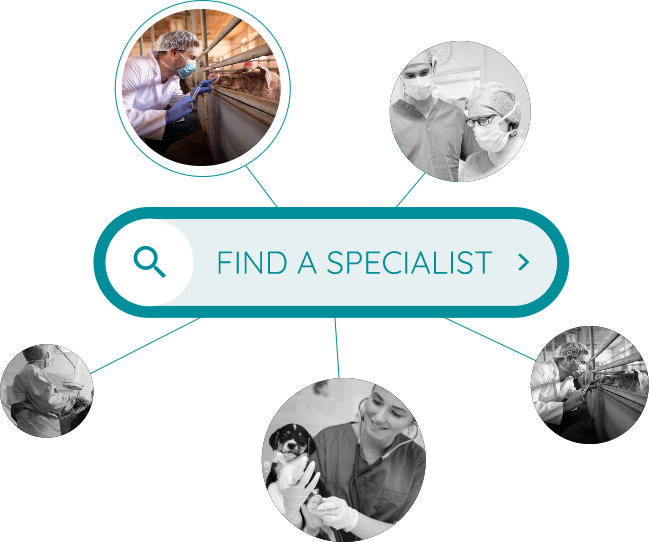
Why is Veterinary Specialization Gaining Ground?
- Advances in Veterinary Medicine and Technology
With continuous advancements in medical technologies, diagnostics, and treatment options, the veterinary profession has become more sophisticated. High-resolution imaging techniques like MRI and CT scans, sophisticated lab diagnostics, and new surgical methods have made veterinary practice more complex and specialized.
Veterinary specialists have the knowledge and skills to navigate these complex technologies and treatment modalities, ensuring that pets and animals get the best possible care. As these advancements continue, the demand for experts in fields such as cardiology, oncology, neurology, and orthopaedic surgery is expected to rise.
- Responsible Pet Ownership and Pet Care Expectations
Responsible pet ownership is on the rise, and along with it comes the growing expectation for higher-quality care. As pets are increasingly seen as family members, pet owners are becoming more willing to invest in their pets’ health, seeking specialized services for serious health concerns and chronic conditions.
Conditions like cancer, diabetes, heart disease, and arthritis are becoming more common in pets due to longer lifespans, and specialized care is often required to provide the best outcomes. Pet owners now expect access to specialists who can offer targeted treatments for these complex health problems, much like how people see specialists for conditions like cancer or heart disease.
- A More Knowledgeable Pet Owner Community
The internet and social media have created a more informed and engaged pet owner community. Pet owners now have access to a wealth of information about animal health and are increasingly aware of the availability of specialized care options. With easy access to online resources, pet owners are more likely to recognize when their pets' health problems require the attention of a specialist.
Social media groups, online communities, and pet forums provide a platform for owners to share experiences and recommendations about veterinary specialists. This growing awareness is contributing to the demand for specialized veterinary services.
Types of Veterinary Specializations on the Rise
As veterinary medicine becomes more specialized, the range of expert fields continues to grow. Some of the most common and emerging veterinary specialties include:
- Veterinary Cardiology
Just like in human healthcare, veterinary cardiology focuses on diagnosing and treating heart diseases in animals. Conditions like heart murmurs, arrhythmias, and congestive heart failure are becoming more common in aging pets. Veterinary cardiologists use advanced diagnostic tools like echocardiograms, ECGs, and blood tests to monitor heart health and prescribe targeted treatments.
- Veterinary Oncology
Cancer is one of the leading causes of death in pets, especially in older animals. Veterinary oncology is a rapidly growing field dedicated to the diagnosis, treatment, and management of various cancers in pets. Oncologists may utilize chemotherapy, radiation, surgery, and immunotherapy to treat pets diagnosed with cancer.
The rise in cancer cases among pets, particularly as they live longer due to advances in overall veterinary care, has led to a surge in demand for veterinary oncologists.
- Veterinary Neurology
Neurology is another area seeing increasing demand, particularly with the aging population of pets. Conditions like seizures, intervertebral disc disease, and brain tumors require specialized care and expertise. Veterinary neurologists use advanced diagnostic imaging (CT, MRI), spinal fluid analysis, and other techniques to assess the nervous system and treat neurological disorders in pets.
- Veterinary Orthopedic Surgery
Orthopedic conditions such as hip dysplasia, fractures, torn ligaments, and arthritis are increasingly common in pets, especially in active or larger breed dogs. Veterinary orthopedic surgeons perform surgeries to correct musculoskeletal issues and use advanced imaging techniques to diagnose bone and joint problems. As pets live longer and more active lives, the need for specialized orthopedic care grows.
- Veterinary Internal Medicine
Specializing in diagnosing and treating diseases affecting the internal organs (like the liver, kidneys, lungs, and digestive system), veterinary internists are in high demand. As pets age, diseases like chronic kidney disease, diabetes, liver disease, and inflammatory bowel disease become more prevalent, prompting a need for specialized care in managing these conditions.
- Veterinary Dentistry
Oral health is critical for a pet’s overall wellbeing, and specialized veterinary dentists treat a wide range of dental issues, from routine cleanings to complex surgeries for gum disease, tooth extractions, and oral tumors. With more emphasis on dental health, especially for small-breed dogs, veterinary dentistry has become a sought-after specialty.
- Veterinary Dermatology
As pets suffer from allergies, infections, and skin conditions like hot spots, atopic dermatitis, and fungal infections, dermatology specialists are needed to provide targeted treatments. Veterinary dermatologists focus on managing these issues, often using advanced allergy testing, dermatologic surgeries, and immunotherapy.
- Veterinary Emergency and Critical Care
While not a traditional "specialty," emergency and critical care (ECC) veterinarians are increasingly sought after in practices and emergency animal hospitals. ECC specialists are experts in managing acute, life-threatening situations, such as trauma, poisoning, respiratory failure, or major surgery recovery.
Challenges and Opportunities for Veterinary Specialization
- Long Educational Pathways
Becoming a veterinary specialist requires years of additional training and education beyond a veterinary degree. Veterinarians must complete internships and residencies in their chosen specialty, which can be time-consuming and expensive as we do not have those study pathways in India. However, the potential rewards in terms of professional satisfaction and financial benefits make specialization an attractive option for many veterinary professionals.
- Limited Availability of Specialists
In some regions, there is a shortage of veterinary specialists, especially in rural areas. As demand for specialized care increases, there's a significant opportunity to expand specialized services to underserved locations, either by training more specialists or by leveraging telemedicine to provide consultations remotely.
- Expanding Specialty Options
As new technologies and emerging health concerns continue to shape the veterinary field, there are increasing opportunities for new specialties. For example, fields like veterinary sports medicine, animal rehabilitation, and even veterinary nutrition are becoming more prominent as the pet industry grows. This gives veterinarians the opportunity to carve out niche specialties and meet specific needs within the pet-owning community.
- Financial Considerations
Specialized care often comes with a higher cost, which may be a concern for some pet owners. However, as the demand for specialized care increases, the veterinary profession must find ways to balance affordability with high-quality care. Many veterinary practices are adopting flexible payment plans, insurance partnerships, and innovative pricing models to make specialized care more accessible.
The Future of Veterinary Specialization
The demand for veterinary specialization is only expected to continue growing. As our pets become more integrated into our families and as advances in veterinary medicine progress, pet owners will increasingly turn to specialists to ensure the best care for their beloved companions.
For veterinary professionals, this represents an exciting time to pursue advanced training in a specific area of interest. Whether it's cardiology, oncology, or neurology, there’s a wealth of opportunities to specialize and make a meaningful impact on the health and wellbeing of pets.
As the veterinary profession continues to evolve, the collaboration between general practitioners and specialists will play a vital role in ensuring that pets receive the highest standard of care. This shift not only benefits pets but also opens new doors for innovation, research, and job opportunities within the field of veterinary medicine.
The future is bright for veterinary specialization, and it’s clear that the pets of tomorrow will benefit from more advanced, personalized care than ever before.
Conclusion
The growing demand for veterinary specialists is a clear reflection of the ongoing advancements in veterinary medicine and the evolving expectations of pet owners. With an increasing focus on high-quality, specialized care, the veterinary profession is adapting to meet these demands, ensuring that pets receive the best possible treatment throughout their lives. As specialization becomes more prevalent, the opportunities for veterinarians to pursue meaningful, fulfilling careers in various areas of animal healthcare will continue to expand, ultimately leading to healthier pets and happier pet owners.

